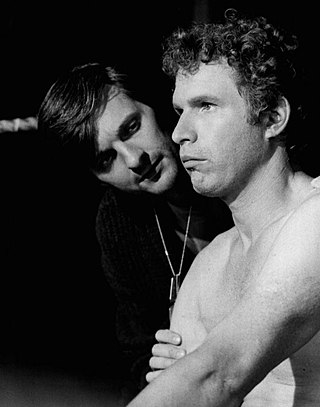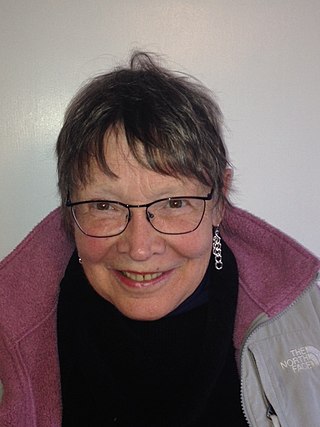Related Research Articles
Uses and gratifications theory (UGT) is an approach to understanding why and how people actively seek out specific media to satisfy specific needs. UGT is an audience-centered approach to understanding mass communication. Diverging from other media effect theories that question "what does media do to people?", UGT instead focuses on "what do people do with media?" It postulates that media is a highly available product and the audiences are the consumers of the same product.
Henry Armand Giroux is an American-Canadian scholar and cultural critic. One of the founding theorists of critical pedagogy in the United States, he is best known for his pioneering work in public pedagogy, cultural studies, youth studies, higher education, media studies, and critical theory. In 2002 Routledge named Giroux as one of the top fifty educational thinkers of the modern period.

Robert C. Solomon was a philosopher and business ethicist, notable author, and "Distinguished Teaching Professor of Business and Philosophy" at the University of Texas at Austin, where he held a named chair and taught for more than 30 years, authoring The Passions: Emotions and the Meaning of Life (1976) and more than 45 other books and editions. Critical of the narrow focus of Anglo-American analytic philosophy, which he thought denied human nature and abdicated the important questions of life, he instead wrote analytically in response to the continental discourses of phenomenology and existentialism, on sex and love, on business ethics, and on other topics to which he brought an Aristotelian perspective on virtue ethics. He also wrote A Short History of Philosophy and others with his wife, Professor Kathleen Higgins.

Public sociology is a subfield of the wider sociological discipline that emphasizes expanding the disciplinary boundaries of sociology in order to engage with non-academic audiences. It is perhaps best understood as a style of sociology rather than a particular method, theory, or set of political values. Since the twenty-first century, the term has been widely associated with University of California, Berkeley sociologist Michael Burawoy, who delivered an impassioned call for a disciplinary embrace of public sociology in his 2004 American Sociological Association (ASA) presidential address. In his address, Burawoy contrasts public sociology with what he terms "professional sociology", a form of sociology that is concerned primarily with addressing other academic sociologists.
"Bananas, Crackers and Nuts" is an episode from M*A*S*H. It was the seventh episode broadcast and aired on November 5, 1972 and repeated April 22, 1973. It was written by Burt Styler and directed by Bruce Bilson.
Marcel Danesi is Professor of Semiotics and Linguistic Anthropology at the University of Toronto. He is known for his work in language, communications and semiotics and is Director of the program in semiotics and communication theory. He has also held positions at Rutgers University (1972), University of Rome "La Sapienza" (1988), the Catholic University of Milan (1990) and the University of Lugano.
MBC 4 is a television channel in the Middle East. It was launched on 1 February 2005 at 5:00 P.M. (GMT) and is owned by the Middle East Broadcasting Center. MBC 4 airs international programmes with Arabic language subtitles. Programming is targeted towards women.
"Major Fred C. Dobbs" is the title of episode #22 of the first season of the TV series M*A*S*H. It originally aired on March 11, 1973.

Michael Burawoy is a sociologist working within Marxist social theory, best known as the leading proponent of public sociology and the author of Manufacturing Consent: Changes in the Labor Process Under Monopoly Capitalism—a study on the sociology of industry that has been translated into a number of languages.

Arif Dirlik was a Turkish-American historian who published on historiography and political ideology in modern China, as well as issues in modernity, globalization, and post-colonial criticism. Dirlik received a BSc in Electrical Engineering at Robert College, Istanbul in 1964 and a PhD in History at the University of Rochester in 1973.

Joe Richard Feagin is an American sociologist and social theorist who has conducted extensive research on racial and gender issues in the United States. He is currently the Ella C. McFadden Distinguished Professor at Texas A&M University. Feagin has previously taught at the University of Massachusetts, Boston, University of California, Riverside, University of Texas at Austin, and the University of Florida.

"Requiem for a Lightweight" is the third episode of the television series M*A*S*H. It was first aired on October 1, 1972 and was repeated on December 31, 1972, the first episode of M*A*S*H to do so. In Watching M*A*S*H, Watching America, a sociological examination of M*A*S*H as an illustration of shifting American values in the 1970s and early 1980s, James H. Wittebols cites this episode as an example of the sexual humor which was common in early M*A*S*H episodes, but downplayed later in the program's history.

Leaving Springfield: The Simpsons and the Possibility of Oppositional Culture is a non-fiction compilation work analyzing the effect of the television program The Simpsons on society, edited by John Alberti. The book was published in 2004 by Wayne State University Press. Contributors to the work include academics associated with Northern Kentucky University, the University of Wisconsin–Stevens Point, The Australian National University, and the University of Sydney.
Robert F. Almeder is Professor Emeritus of Philosophy at Georgia State University. He is known in particular for his work on the philosophy of science, and has also written on the philosophy of mind, epistemology and ethics. He is the author of 24 books, including The Philosophy of Charles S. Peirce (1980), Death and Personal Survival (1992), Harmless Naturalism: The Limits of Science and the Nature of Philosophy (1998), Human Happiness and Morality (2000), and Truth and Skepticism (2010).
Daniel H. Nexon is an American historian who serves as a professor in the School of Foreign Service and the Department of Government at Georgetown University. His first book, The Struggle for Power in Early Modern Europe: Religious Conflict, Dynastic Empires, and International Change, won the 2010 International Security Studies Section of the International Studies Association Book Award. Nexon has received several prestigious fellowships and awards. In 2009 and 2010 Nexon received an International Affairs Fellowship from the Council on Foreign Relations. He served his fellowship in the Office of the Secretary of Defense (Policy) in the Russia/Ukraine/Eurasia regional office. In 2012, the Social Science Research Council recognized Nexon as an important "new voice" in international affairs.

Judith Blau is an American sociologist and professor emerita of the University of North Carolina at Chapel Hill. Most of her academic career has been devoted to teaching and writing about human rights, and she retired to Wellfleet, Massachusetts, where she continues to teach.
Mark P. Mostert is co-director of the Institute for Disability and Bioethics and professor of Special Education at Regent University, Virginia Beach. He has written about and lectured on Eugenics and Euthanasia, Nazi Germany's state-sanctioned "useless eater" policy to exterminate people with disabilities and others considered less than human, and the fads and pseudoscientific practices found in special education.
Lina Dencik is the Co-Director of the Data Justice Lab at the University of Cardiff. She is Professor at Cardiff's School of Journalism, Media and Culture. She specialises in digital surveillance and the politics of data. Previously she worked as a television producer/director at Brook Lapping Productions in London.
References
- 1 2 "Wittebols, James H. 1955–". Encyclopedia.com. Cengage. Retrieved August 25, 2020.
- ↑ "Dr. James H. Wittebols". University of Windsor . Retrieved September 21, 2016.
- ↑ Reviews of Watching M*A*S*H, Watching America:
- Smith, Robert W. (2005). "Watching M*A*S*H, Watching America: A Social History of the 1972-1983 Television Series". The Journal of Popular Culture . 38 (3): 595–596. doi:10.1111/j.0022-3840.2005.130_13.x.
- Johnson, Charles T. (2004). "Watching M*A*S*H Watching America: A Social History of the 1972–1983 Television Series". History: Reviews of New Books. Informa UK Limited. 32 (2): 46–47. doi:10.1080/03612759.2004.10528545. ISSN 0361-2759. S2CID 216558093.
- ↑ Reviews of the Soap Opera Paradigm:
- Edwards, Lynne Y. (2006). "Book review of "The Soap Opera Paradigm: Television Programming and Corporate Priorities", by James H. Wittebols". Popular Communication. 4 (2): 143–145. doi:10.1207/s15405710pc0402_5. S2CID 143162479.
- McNicholas, Anthony (August 1, 2006). "Book Review: James H. Wittebols (2004) The Soap Opera Paradigm: Television Programming and Corporate Priorities, Oxford: Rowman and Littlefield. ISBN 0742520013". Westminster Papers in Communication and Culture. University of Westminster Press. 3 (3): 112. doi:10.16997/wpcc.65. ISSN 1744-6716.
- Altheide, David L. (February 2008). "The Soap Opera Paradigm, by James H. Wittebols". Political Communication . 25 (1): 109–111. doi:10.1080/10584600701808248. S2CID 142860213.
- Cook, Judi Puritz (March 2006). "The Soap Opera Paradigm: Television Programming and Corporate Priorities". Journalism & Mass Communication Quarterly . 83 (1): 223–224. doi:10.1177/107769900608300113. S2CID 221051382. ProQuest 216933153.
- Attallah, Paul M. "The Soap Opera Paradigm: Television Programming and Corporate Priorities". Canadian Journal of Communication . 31.